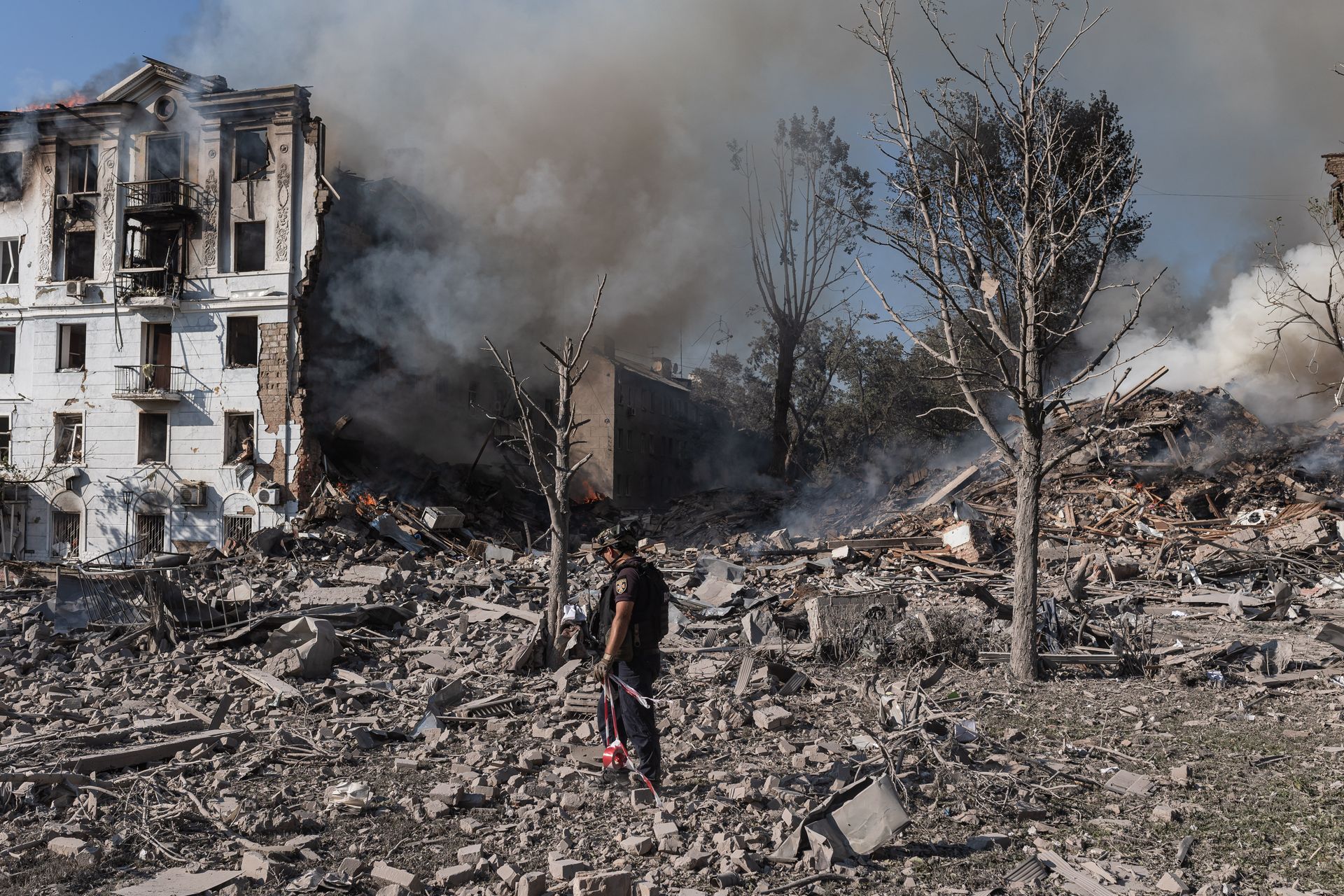Zelensky meets Starmer in UK day before Trump-Putin summit

President Volodymyr Zelensky arrived in London on Aug. 14 for talks with British Prime Minister Keir Starmer at Downing Street, just a day before a high-stakes U.S.-Russia summit in Alaska.
The two leaders met after a joint call on Aug. 13 between Zelensky, U.S. President Donald Trump, and European leaders, during which the U.S. president pledged to push for a ceasefire in Ukraine in his upcoming meeting with Russian President Vladimir Putin on Aug. 15.
"A good, productive meeting with U.K. Prime Minister Keir Starmer. We continue to coordinate our positions," Zelensky said on X after the talks in London.
The pair discussed security cooperation within the coalition of the willing and possible security guarantees "if the United States succeeds in pressing Russia to stop the killings and engage in genuine, substantive diplomacy," the president noted.
The agenda also included support for Ukraine's military and defense industry, investments in the Ukrainian drone production, and military support via the Prioritized Ukraine Requirements List (PURL) program.
Zelensky said he had invited the U.K. to join the PURL initiative, a NATO scheme under which several allies have already allocated $1.5 billion for purchasing U.S. weapons for Ukraine.
The two leaders also discussed a 100-year partnership agreement between the two countries, which was signed in June and will be ratified by Ukraine later this month.
A good, productive meeting with UK Prime Minister @Keir_Starmer. We continue to coordinate our positions.
— Volodymyr Zelenskyy / Володимир Зеленський (@ZelenskyyUa) August 14, 2025
Yesterday, together with all our partners, and today in a bilateral format, we discussed expectations for the meeting in Alaska and possible prospects. We also discussed in… pic.twitter.com/mcM1f2dPTd
"Great to see you, my friend (Volodymyr Zelensky). Britain will always stand with Ukraine," Starmer said on X.
Zelensky has been in close contact with European allies ahead of the summit between Trump and Putin, their first in-person meeting since Trump's return to office in January.
Speaking in Berlin alongside German Chancellor Friedrich Merz on Aug. 13, Zelensky said that Trump had pledged to make a ceasefire "one of his priorities" in talks with Putin.
Trump described the conversation with Zelensky and the European leaders as "very friendly" and noted the possibility of a second meeting after his planned summit with Putin.
According to Merz, European leaders are doing everything possible to steer the planned meeting between Trump and Putin "in the right direction."
"We want the correct sequence: first, a ceasefire — this must be at the very beginning. Later, there may be a framework agreement. Third, Ukraine is ready to negotiate on talks and territorial issues, but our starting point is the contact line," the chancellor said.

A source cited by Axios said Trump told the leaders that he could not make final decisions on territorial issues but believed "land swaps" would likely be part of any peace agreement.
Separately, French President Emmanuel Macron said that the U.S. is ready to provide security guarantees to Ukraine once peace is established, but that NATO membership is not on the table as a possible guarantee.
After a later meeting of the coalition of the willing co-chaired by Macron, Starmer, and Merz, the European leaders rejected any limitations on Ukraine's military or NATO and EU aspirations as part of a peace deal.
The coalition also reaffirmed readiness to provide security guarantees to Ukraine, "including through plans by those willing to deploy a reassurance force once hostilities have ceased."
Since returning to office in January, Trump has pledged to broker a swift peace deal between Kyiv and Moscow — efforts that quickly stalled as Russia repeatedly rejected a ceasefire and pushed maximalist demands during peace talks with Ukraine in Istanbul.
Publicly, Putin has demanded a ban on Ukraine's NATO membership and a full Ukrainian withdrawal from partially occupied Donetsk, Luhansk, Kherson, and Zaporizhzhia oblasts, among other conditions.
Zelensky has rejected the possibility of recognizing the Russian occupation of Ukrainian territory and ceding additional land, calling for a ceasefire as the first step toward peace negotiations, a position supported by Kyiv's European allies.













